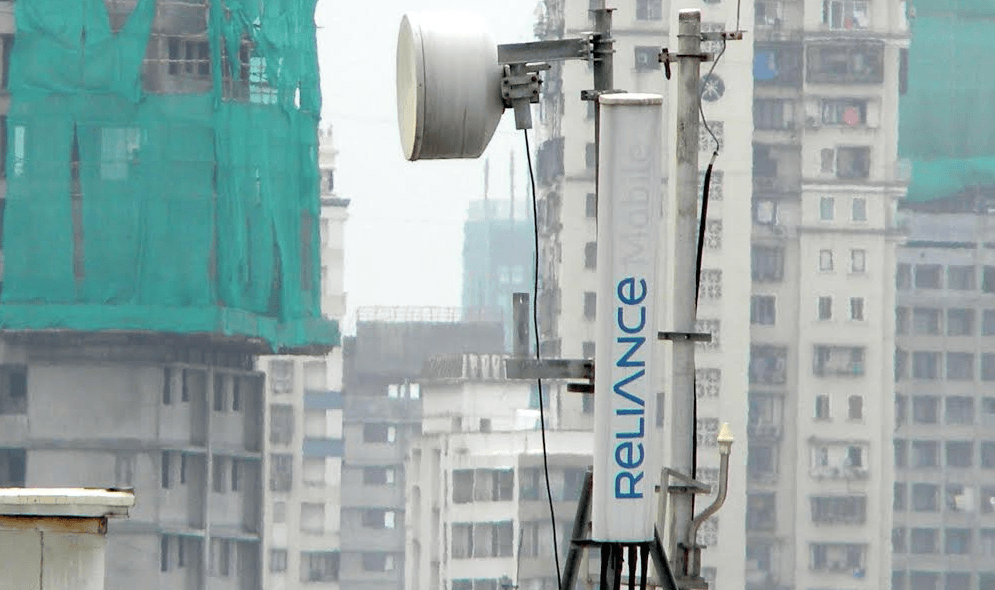Moody’s and Fitch have downgraded Anil Ambani-led telco Reliance Communications Limited's (RCOM) rating following full year net loss of Rs 1,285 crore and 11% decline in revenues. Moody's Investors Service has downgraded Reliance Communications Limited's (RCOM) corporate family rating and senior secured bond rating to Caa1 from B2.

Fitch Ratings has downgraded RCom’s Long-Term Foreign- and Local-Currency Issuer Default Ratings (IDRs) to 'CCC' from 'B+'. The agency has also downgraded the rating on RCom's $200 million 6.5% senior secured notes due 2020 to 'CCC/RR4' from 'B+/RR4'.
"The downgrade reflects RCOM's weak operating performance, high leverage and fragile liquidity position. The company's reported EBITDA has fallen 29% year-over-year, evidencing its weak market position and contracting subscriber base," Annalisa DiChiara, a Moody's Vice President and Senior Credit Officer, said in a statement.
Fitch said that the telco’s liquidity position is fragile. The telco has around Rs 230 billion short-term debt and current long-term debt maturities through 31 March 2018.
“In addition, the company disclosed in its financial statements that it is still awaiting formal confirmation from lenders for waivers of certain loan covenants, so the loan amount continues to be classified as a non-current liability. We believe failure to obtain could exacerbate near-term liquidity pressures," added DiChiara.
Fitch said that RCom's rating downgrade reflects the agency's belief that some kind of default is a real possibility.
“We believe that Rcom may struggle to refinance its maturing short-term debt given declining EBITDA and delays in executing as sales. Given its high level of debt, we believe that RCom's business model is compromised due to fierce price competition in the Indian mobile market,” Fitch said in a note.
RCom's market position is weak, and it has a limited financial flexibility to invest to strengthen its position or step-up marketing costs, Fitch said in a note released on Thursday.
Last week, RCom reported a 29% contraction of EBITDA to Rs 53.9 billion ($830 million) for the full year ending 31 March 2017 from Rs 76.3 billion ($1.2 billion) a year ago, while its EBITDA margin dropped to 27.0% from 34.2% over the same period.
RCom's weak operating results reflect the intense state of competition, driven in turn by the free services offered by Reliance Infocomm Limited (RJio) from mid-September 2016 through 1 April 2017, agencies said.

Moody’s stated that RCom has historically relied on short-term debt and covenant waivers from its banking relationships. Should the waivers not be received, this development could have significant implications for the holders of RCom's $300 million bond, as there are cross-payments and cross-defaults for any acceleration, in each case by the issuer or any restricted subsidiary, with respect to debt in an aggregate of $10 million.
RCom recently announced that it is current on interest payments as related to it's $300 million bonds. Meanwhile, as of 31 March 2017, RCOM reported cash and cash equivalents of INR10.2 billion. Together with Moody's expectation of the company's limited ability to generate free cash flow, Moody's believes this will be insufficient to cover upcoming debt maturities, absent waivers from its lenders while the company pursues the completion of its corporate restructuring.
The restructuring includes the sale of its telecommunications tower assets and the de-merger of its core wireless operations which it will merge with Aircel Limited (unrated) in a new joint venture (MergerCo).
Given the weak operating outlook and high competitive intensity of the Indian mobile sector, there is no scope for RCOM to deliver, absent the successful execution of its corporate restructuring, Moody’s said.
RCom on May 27 announced that it would transfer around Rs 4 billion of balance-sheet debt and Rs 6 billion of deferred spectrum liabilities to MergedCo and repay an additional Rs 11 billion of balance-sheet debt with the proceeds from the sale of its tower assets.
However, even assuming these transactions are completed as planned, post restructuring, Moody's estimates that RCOM will have over $3.0 billion of debt remaining on its balance sheet. This total includes both RCOM's $300 million senior secured bond and a $350 million senior secured bond issued by its 100%-owned subsidiary, GCX Limited.
But GCX, which Moody's estimates will account for a significant portion of revenues post restructuring (based on Moody's estimates), is not a restricted subsidiary under RCOM's $300 million bond indenture, and therefore RCOM has no recourse to those assets or cash flows. GCX is ring-fenced from creditors at RCOM, with dividend payments currently representing the only form of cash flow stream from GCX.















